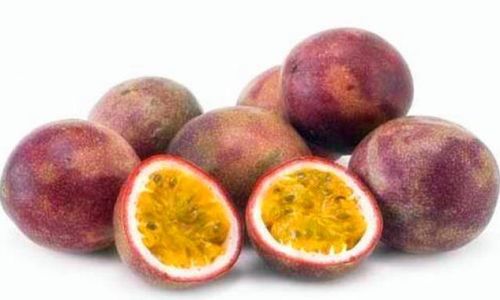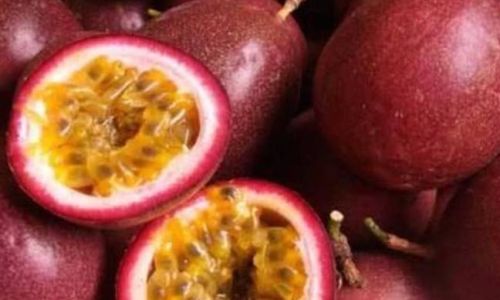Introduction
Passion fruit (Passiflora edulis), a vibrant tropical fruit known for its sweet-tart flavor and aromatic seeds, has become a staple in juice blends, desserts, and health-focused diets worldwide. However, as public awareness of genetically modified organisms (GMOs) grows, so do questions about the origins and safety of common foods. One recurring inquiry is whether passion fruit—a beloved ingredient in culinary traditions—is a product of genetic engineering. This article delves into the science, history, and regulations surrounding passion fruit to address this question comprehensively. By examining its cultivation practices, genetic makeup, and global agricultural trends, we aim to clarify misconceptions and provide evidence-based insights.
Understanding Genetically Modified Organisms (GMOs)
Before analyzing passion fruit’s status, it is essential to define GMOs. A GMO is an organism whose genetic material has been altered through biotechnology to introduce specific traits not naturally occurring in the species. This process typically involves inserting DNA from unrelated organisms, such as bacteria or other plants, to enhance resistance to pests, diseases, or environmental conditions. Common examples include Bt corn, Roundup Ready soybeans, and Arctic apples.
Critics argue that GMOs may pose health risks or environmental impacts, while proponents highlight their potential to increase crop yields, reduce pesticide use, and address food security. Regulatory frameworks, such as those in the European Union, United States, and other regions, mandate labeling and safety assessments for GMOs to ensure consumer protection.

The Origin and Cultivation of Passion Fruit
Passion fruit is native to South America, with historical records tracing its cultivation to the 18th century. European explorers brought it to Europe, and it later spread to Asia, Africa, and Australia. Today, it thrives in subtropical and tropical climates, including Brazil, Kenya, India, and Hawaii. The fruit’s popularity stems from its nutritional profile—rich in vitamin C, fiber, and antioxidants—and its versatility in culinary applications.
Unlike crops such as soybeans or corn, which have been extensively modified for agricultural efficiency, passion fruit has traditionally been cultivated through selective breeding and hybridization. Farmers have crossbred varieties to improve traits like disease resistance, yield, and flavor without resorting to genetic engineering. This raises a critical question: If passion fruit has not undergone laboratory-based genetic modification, why does the myth persist?
Debunking the GMO Myth: Genetic Evidence
Genetic studies confirm that commercial passion fruit varieties are not genetically modified. Research published in the Journal of Agricultural and Food Chemistry (2021) analyzed the genomes of 50 passion fruit cultivars and found no traces of recombinant DNA or foreign genetic material. The fruit’s genetic diversity arises from natural mutations and cross-pollination, not bioengineering.
Moreover, the International Service for the Acquisition of Agri-biotech Applications (ISAAA), a nonprofit promoting biotechnology, does not list passion fruit among approved GMO crops. This ommission is significant, as the organization closely tracks global GMO adoption.
Why Passion Fruit Is Often Mistaken for a GMO
Several factors contribute to the confusion:
- Hybrid Varieties: Some passion fruit strains, like the “purple granadilla,” result from controlled hybridization. While hybrids are not GMOs, the term “genetically modified” is sometimes misused to describe them.
- Pesticide Use: Passion fruit farms may employ synthetic pesticides, leading consumers to associate conventional farming with GMOs. However, pesticide use and genetic modification are distinct agricultural practices.
- Misinformation: Sensationalist articles or social media posts occasionally label exotic fruits as GMOs without scientific basis.
Global Regulations and Labeling
In regions with strict GMO labeling laws, such as the European Union, passion fruit products are not required to carry GMO labels. This reflects regulatory bodies’ recognition that the fruit is non-GMO. Conversely, in the United States, the FDA mandates labeling only if a food’s genetic modification significantly alters its nutritional content or introduces allergens—criteria passion fruit does not meet.
Health and Safety Considerations
For health-conscious consumers, the non-GMO status of passion fruit is reassuring. Natural passion fruit offers benefits like improved digestion, enhanced immunity, and antioxidant effects. Studies in Nutrition Research (2020) linked its consumption to reduced inflammation and better cardiovascular health.

If genetically modified passion fruit existed, it would undergo rigorous safety testing. However, no such testing is currently required, as the fruit remains unmodified.
The Role of Biotechnology in Passion Fruit Research
While commercial passion fruit is not GMO, scientists have explored genetic engineering to address challenges like diseases and climate resilience. For instance, a 2022 study in Plant Biotechnology Journal proposed using CRISPR-Cas9 gene-editing technology to enhance passion fruit’s resistance to the bacterial disease Xanthomonas. Importantly, gene editing—which modifies an organism’s existing DNA rather than introducing foreign genes—is a separate category from traditional GMOs and often faces different regulatory scrutiny.
However, these technologies remain in experimental stages and have not yielded commercial products. Thus, they do not affect the current non-GMO status of passion fruit.
Consumer Perspectives and Market Trends
The demand for non-GMO foods has surged in recent years, with retailers like Whole Foods and Trader Joe’s emphasizing GMO-free sourcing. Passion fruit’s natural cultivation aligns with this trend, making it a preferred choice for organic and clean-label products.
In contrast, GMO crops like papaya (modified for virus resistance) or sweet corn face market resistance due to consumer skepticism. Passion fruit’s avoidance of this controversy underscores its reputation as a wholesome, unadulterated fruit.
Expert Opinions and Agricultural Practices
Agricultural experts consistently affirm passion fruit’s non-GMO status. Dr. Maria Lopez, a botanist at the University of São Paulo, states, “Passion fruit’s genetic integrity has been preserved through centuries of traditional farming. There’s no biological or commercial incentive to genetically modify it.”
Similarly, the Food and Agriculture Organization (FAO) categorizes passion fruit as a “low-risk” crop for genetic modification, citing its adequate natural resilience and market viability without bioengineering.

Future Implications: Climate Change and Innovation
As climate change threatens global agriculture, passion fruit farmers may adopt sustainable practices like drought-resistant varieties or precision farming. However, these innovations do not equate to genetic modification. Instead, they represent evolutionary adaptations in cultivation techniques.
Should passion fruit ever be genetically modified—perhaps to withstand rising temperatures or pests—it would require decades of research, regulatory approvals, and public acceptance. For now, such scenarios remain hypothetical.
Conclusion
Passion fruit is not a genetically modified organism. Its cultivation relies on traditional breeding, natural selection, and ecological adaptation. While biotechnology offers tools for future agricultural challenges, passion fruit’s current status as a non-GMO food is firmly grounded in scientific evidence, regulatory frameworks, and agricultural history.
Consumers seeking non-GMO options can confidently enjoy passion fruit, knowing it embodies nature’s bounty untouched by genetic engineering. As awareness grows, distinguishing between myths and facts about GMOs will remain essential for informed dietary choices. Passion fruit stands as a testament to the enduring value of traditional agriculture in a rapidly evolving world.
Final Thoughts
The debate over GMOs reflects broader societal tensions about food, technology, and environmental stewardship. By examining specific cases like passion fruit, we can foster nuanced discussions that balance scientific rigor with ethical considerations. Whether passion fruit remains non-GMO or eventually embraces biotechnology, its story underscores the importance of transparency, education, and choice in the global food system.






0 comments